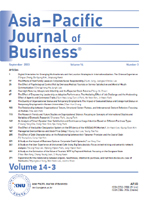조직의 구조조정에 대한 성과피드백과 제도적 논리의 영향: 한국대학의 학과 통폐합에 대한 선행요인 분석
Performance Feedback and Institutional Logic in Organizational Restructuring: Department Consolidation in Korean Universities: An Analysis of Preceding Factors
- 강원대학교 경영경제연구소
- 아태비즈니스연구
- 제16권 제1호
-
2025.03209 - 223 (15 pages)
-
DOI : 10.32599/apjb.16.1.202503.209
- 7

Purpose - The aim of this study is to analyze the organizational factors that lead to the consolidation of departments at Korean universities. Due to the rapid decline in school-age populations, universities are actively undergoing restructuring, with department consolidation being considered as the most effective means of doing so. A number of studies have examined macro factors that result in departmental mergers as well as their problems, but little has been discussed regarding how the mergers are implemented from the perspective of individual universities. As a complement to such previous studies, this study applies the concepts of threat rigidity response and institutional logic from organizational theories to identify organizational factors leading to department consolidation. Design/methodology/approach - This study predicts that departmental mergers will occur as a threat-reaction to negative feedback on university admission performance. It may, however, depend on the dominant institutional logic within the university organization to what extent this occurs. Academic logic, which emphasizes autonomous research to generate profit, and business logic, which emphasizes external evaluation and profit generation, result in less rigidity in response to threats. Findings - An analysis of 2,205 observations from 194 Korean universities found that departments were more likely to merge when universities received negative feedback on their admission performance. Nevertheless, with increasing academicism and business-orientedness within the university, this tendency weakens. Research implications or Originality - This study demonstrates that the stronger the academicism that pursues internal autonomy and independence, and the stronger the businessism that pursues external evaluation and operational efficiency, the weaker the threat rigidity response of the organization. It also contributes to the research on Korean universities by verifying this through empirical data.
Ⅰ. 서론
Ⅱ. 이론적 배경 및 가설 설정
Ⅲ. 연구방법론
Ⅳ. 실증분석 결과
Ⅴ. 결론
References
(0)
(0)